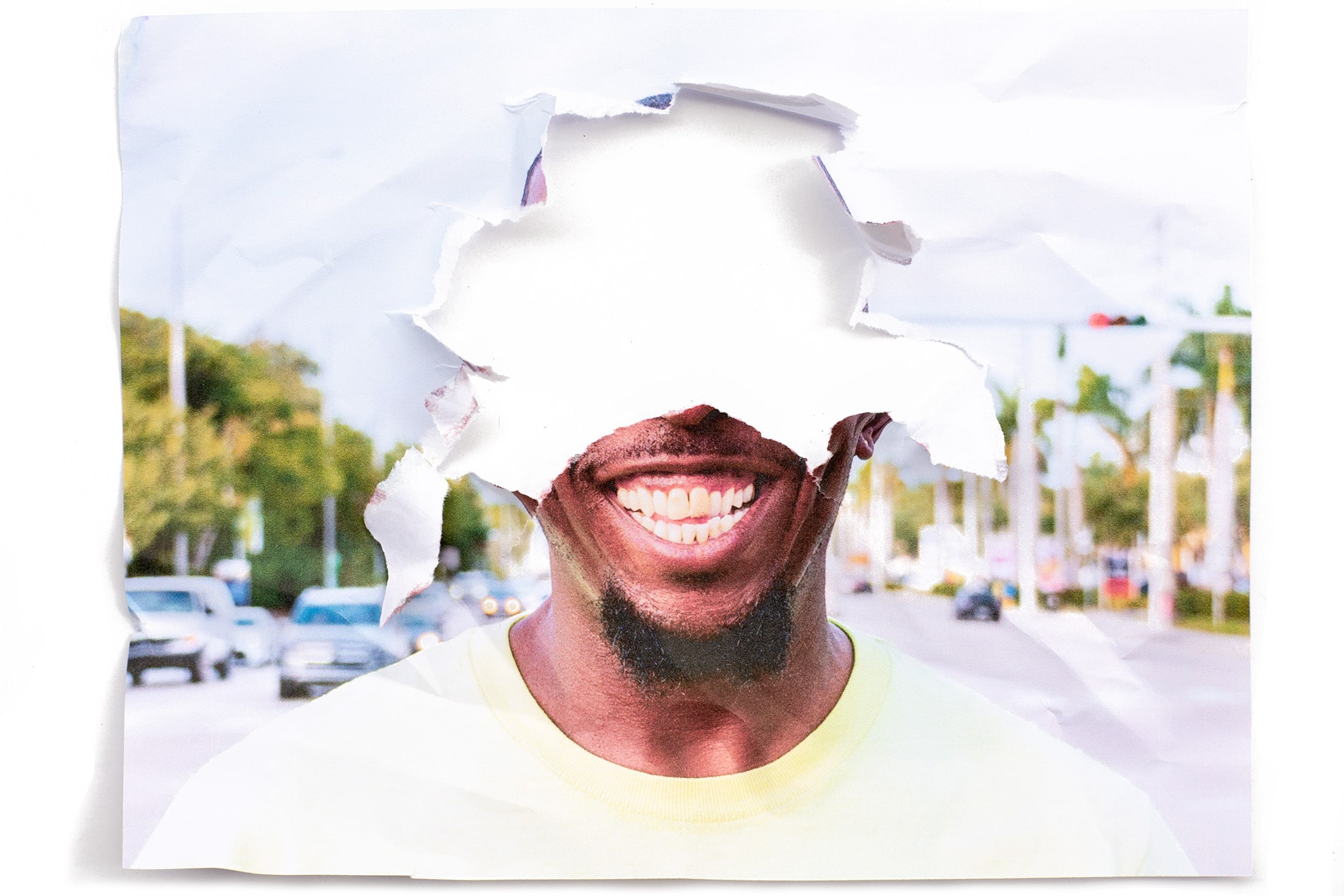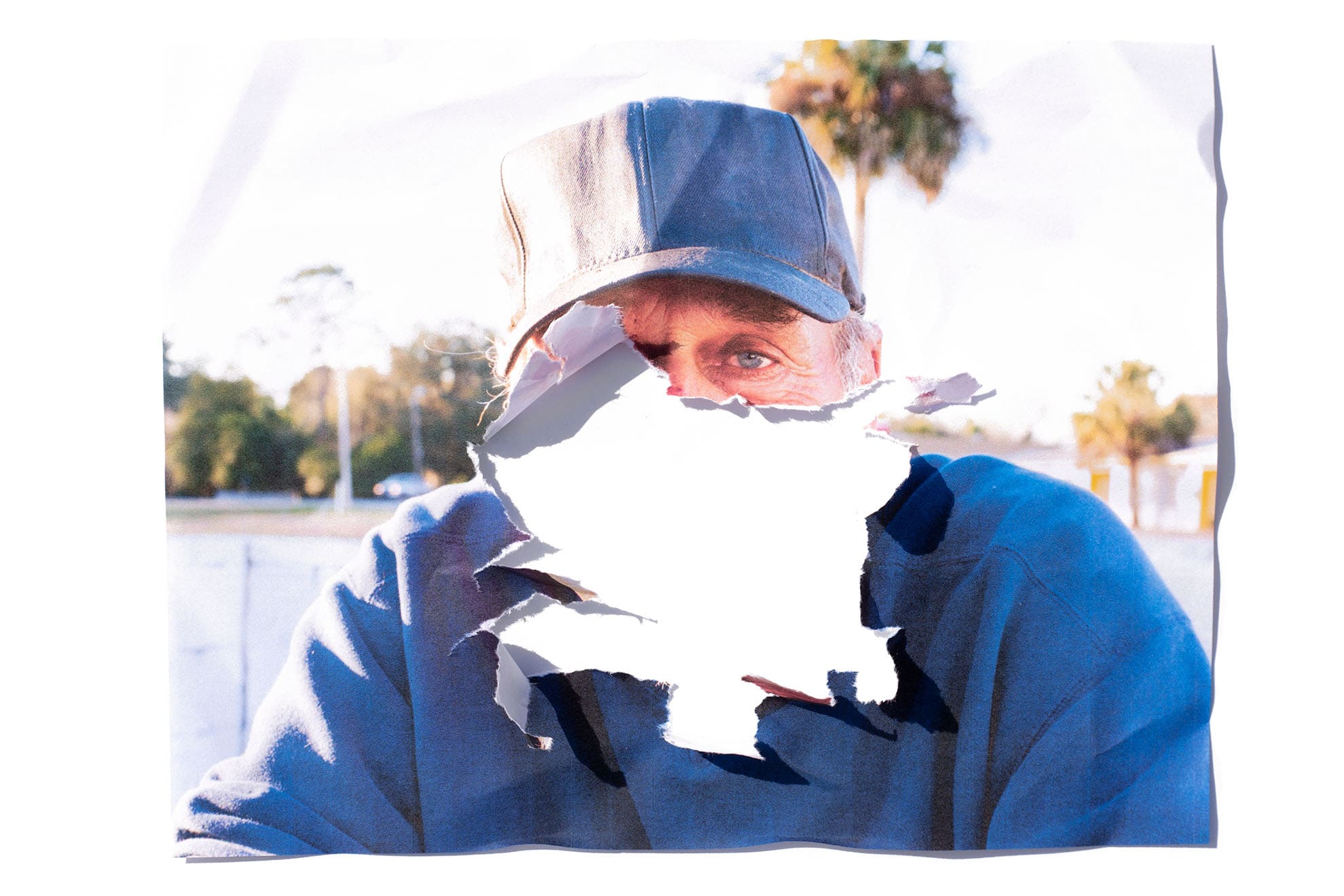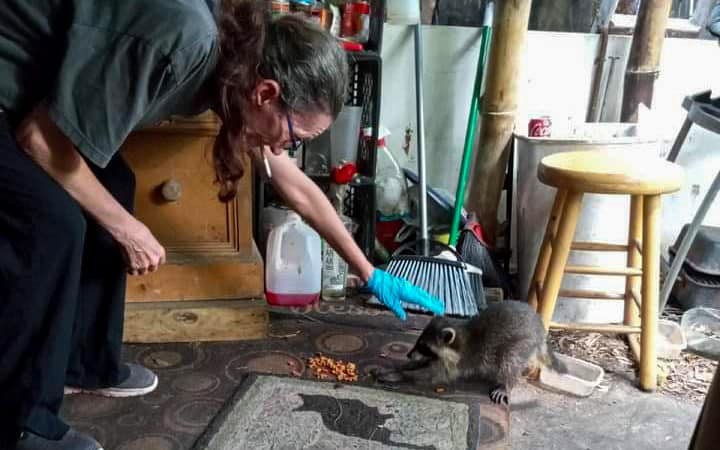Homeless status was added to Florida hate crime laws in 2010, but for eight years they were unreported by the state. By one non-profits estimate, homeless hate crimes have outnumbered all others since 1999, but by the state’s estimate, since 2018, there’s only been three.
By Andrew Fraieli
“Deep down, I still seethe with resentment over never having obtained justice for what has happened to me,” says Mary Stewart, a woman experiencing homelessness in Palm Beach. She’s referring to the multiple batteries, attempted robberies, and sexual assaults she has endured. “It burns me up inside to see law enforcement harass the homeless for panhandling, open containers, trespassing, and public urination — which are petty crimes — but doing nothing when a homeless person is raped, beaten, or robbed.”
In 2010, Florida passed legislation adding “homeless status” to the list of those protected by the state’s hate crime law. Up until then, Florida was second only to California for most crimes against the homeless since 1999.
But whether making those sleeping on the streets a protected class has hindered crimes against them is unclear, as is whether the current count of homeless hate crimes is even accurate. According to advocates, hate crimes against the homeless are severely undercounted, partly because crimes are being reported that fit the criteria for hate crimes, but are not being reclassified as such.
When asked to define a hate crime against the homeless, Donald Whitehead, the Executive Director of The National Coalition of Homelessness (NCH) — a non-profit organization based in D.C. that advocates for the homeless, and one group that claims the official numbers are severely underreported — told the Homeless Voice it isn’t very different than any other hate crime.
One difference may be in the NCH’s own reporting, as their annual reports don’t even include opportunistic crimes, Whitehead says, only what they deem to be purely hate-motivated, but they intend to in the future. “We have to capture those that would be considered opportunistic. Whether opportunistic or intentional, it’s still an act of hate against a person in a vulnerable situation,” he says. “Most jurisdictions are not tracking those as hate crimes. Many times they aren’t even tracking homeless status.”
The discrepancy between what crimes towards the homeless are labeled hate-motivated and which aren’t is vast according to these hate crime reports the NCH has been publishing since 1999. They show, from their research, there being more fatal attacks on the homeless than any other prejudiced group kept track of by the Department of Justice from 1999 to 2016, with recent years showing non-homeless hate crimes rising above.
For context, in 2018 in Orlando alone, there were 392 cases of assault or battery to varying degrees against a homeless person according to Orlando Police Department public records, six homicides of homeless people in Orlando according to the Orlando Medical Examiner’s Office, and eight in Miami according to the Miami-Dade Medical Examiner’s office.
A significant part of the underreporting is also the state not technically being required to track homeless hate crimes at all.
Florida’s Attorney General is mandated by the Hate Crime Reporting Act to release an annual report of all hate crimes across the state. But, this reporting act only includes race, religion, ethnicity, color, ancestry, sexual orientation, or national origin as prejudices, it was not updated when Florida’s hate crime law added the additional prejudices of homeless status and advanced age.
The annual report addresses this saying that even though it was added to Florida’s hate crime law in 2010, “no data is available because homeless status is not part of the UCR and is not required to be collected by law enforcement agencies or FDLE as part of the Hate Crimes Reporting Act.”
The FDLE, or Florida Department of Law Enforcement, congregates the data from law enforcement agencies across the state through Florida’s Uniform Crime Reports (UCR) Program to give to the Florida Attorney General.
Functionally, even though homelessness was added as a prejudice to the state’s hate crime law, the state did not track it for eight years because it wasn’t legally obligated to — until suddenly in 2018, it did.
Even then, the FDLE could not produce any documents or information detailing the reason it suddenly required law enforcement to report homeless hate crimes in 2018 onwards. FDLE public information officer Dana Kelly cited that the entire staff had changed within the past year, only able to say that this discrepancy between laws was at least partially the reason for the lack of reporting, and that police departments could have voluntarily tracked it if they wanted to.

This change of one law and not the other does have precedent though.
In 1998, advanced age was added as a prejudice in Florida’s hate crime law, and the Hate Crime Reporting Act remained unchanged. But, the FDLE hate crime reporting guide was changed to include advanced age the following year, and the 1999 Attorney General report included it and continues to today. The FDLE hate crime reporting guide wasn’t further updated until 2018, the year “homeless status” began to be included in the reports.
The Hate Crime Reporting Act hasn’t actually been updated — besides wordage on public record requirements a few times — since 1991 when it and the hate crime law were both amended to include sexual orientation in the same session.
The annual hate crime reports have now included “homeless status” since 2018, but according to that year’s Florida Attorney General Hate Crime report, there was only one hate crime against the homeless across the entire state that year — a simple assault in Orlando, the same city which had 392 assaults and batteries against the homeless of its own.
According to the report from the Orlando Police Department, on January 30 around 2 AM at a 7-Eleven, a man experiencing homelessness asked a man that just arrived if he had any money. That man became “irate and agitated,” “suddenly” and “aggressively” kicked a trash bin into the man experiencing homelessness, and then pushed his forearm into his chest and throat. The attacker eventually fled, but was positively identified after the fact and charged with battery.
According to the Orlando Police Department though, the report, which was marked as a potential hate crime, was later amended as having no evidence of a hate crime in a supplemental report. Therefore, the one reported hate crime against a homeless person in 2018 was never actually reclassified as such.
One example of a crime in Florida labeled as hate-motivated by the NCH in 2018, but not officially considered a hate crime, was a case of “aggravated battery with deadly weapon.”
According to the police report from the Pasco County Sheriff’s Office, a car of five teens followed two separate homeless men around 2 AM in Holiday, Florida, continuously shooting each with metal BBs. They did donuts around one of them yelling, “Give me a dollar, “Fucking pussy,” and “Homeless Fucker” among other insults. All five teens were arrested for “aggravated battery with deadly weapon,” but the crime was not reclassified as a hate crime by the Sheriff’s Office.
The NCH found three others in 2018 as well, with Whitehead acknowledging they are limited by the media’s own underreporting on cases like this, as the media is a main source for them. He also mentions the underreporting by the homeless themselves of crimes against them, and the number of hate crimes this leaves unreported.
Basically, people poor people and homeless people deserve anything extra, whether it’s resources that are needed to track these crimes, or or anything,
For 2019, the NCH labeled five crimes against the homeless as hate-motivated, including one instance where a group of teens beat and harassed a homeless man in broad daylight. “There’s a higher level of resentment towards homeless people in Florida than I’ve seen in other communities,” commented Whitehead, who previously lived in Orlando, but currently lives in Washington D.C.
Yet, according to Florida’s reports, in 2019 there were no hate crimes against the homeless.
The official reports from the Attorney General address this possible discrepancy of, within similar crimes, some being labeled as hate while others aren’t.
In the beginning of each report the following is stated:
“As variations may exist among law enforcement agencies in how hate crime data is gathered and reported, it is important to note that this report does not include unreported crimes or crimes that may be hate-related but are not classified as such by the local reporting agencies.”
The FDLE’s Uniform Crime Reports guide manual — to be used by law enforcement agencies to properly report crimes to them — further describes how hate crimes should be determined, saying officers “must rely on their investigative judgment, as well as use probable cause standards,” as well as quoting the FBI’s Hate Crime Manual’s factors to be considered.
But not all Florida police departments see it as their responsibility to classify a crime as a hate crime. Miami-Dade Police Department Public Information Officer Chris Thomas elaborated that they see it as the job of the State Attorney’s Office (SOA).
An SOA — of which there are 20 in Florida — represents a county or city in prosecuting crimes given to it by law enforcement agencies. When a police department says in a police report they believe a crime was motivated by prejudice, the SOA is who prosecutes for that.
“In the past we’ve had anti-semitic messages that have been spray-painted on the walls of a synagogue, but we don’t say ‘this is a hate crime,’ we would say this is an act of vandalism, that’s the actual charge. It would be vandalism, but, this is what we saw at that time. Once that is submitted, if someone is charged, that is submitted to the State Attorney’s Office and they will make a determination as to whether they’ll be tried with a hate crime or not.”
When asked further about why the department chooses to not reclassify or determine something to be a hate crime, Thomas said, “I don’t think there’s anything that says we have to…”
“With us, everything is evidence based. We can’t give opinions on anything…what we see is what we record and that’s what we have,” continues Thomas. “We can’t speculate as to why this person did that unless you actually hear someone yell something anti-semitic, or, ‘Hey, I’m doing this because you’re homeless,’ or, ‘I can’t stand homeless people.’ You have to get those spontaneous utterances actually documented in order for it to be charged.”
In 2017, the Miami-Dade Police Department, according to the Miami New Times, was found to be severely undercounting their hate crimes, reporting only one to the FDLE across Miami-Dade — an area encompassing 2.7 million people, with their patrol area containing 1.2 million— for all of 2017. The department admitted after the inquiry they may have been reporting them incorrectly to the FDLE.
Quoted as well was a report by ProPublica released the same year highlighting law enforcement agencies that either reported suspiciously few hate crimes for their population, or reported none at all. 21 Florida police departments were on that list including Miami-Dade, City of Miami, and Orange County.
The Department of Justice itself, which collects hate crime data from every state for their own annual report, stated in 2020 in a report about “Improving the Identification, Investigation, and Reporting of Hate Crimes,” that there’s “potential for underreporting both by victims and by law enforcement.” They elaborate, as a specific example of this, that “87 percent of the agencies [nationwide] that participated [in UCR] reported zero hate crimes in all of 2017.”
The mentality of the Miami-Dade Police Department can add another layer contributing to underreporting though, a layer separate from prejudice against the homeless, or a problem of victimization.
According to Ed Griffith, a Public Information Officer at the Miami-Dade SOA, as part of prosecuting any crime, they reach out to officers involved, witnesses, etc. to gather evidence and build a case. If they agree it was a hate crime, they reclassify it as such.
Sometimes though, Griffith says, the SOA will believe prejudice was involved in a crime even if the law enforcement agency has not said so in their report, and they will interview witnesses and police accordingly. This would be the situation in PIO Thomas’ anti-semitic messages on a synagogue scenario.
This can lead to an incomplete picture for the law enforcement agencies who, on paper, do not have that crime recorded as involving prejudice, but it may very well, in the end, be prosecuted as such. “Now you might ask,” says Griffith. “‘May that not lead to an underreporting in hate crimes?’ And yes, it’s absolutely true.”

This is because police departments are the sole organizations that report hate crimes to the FDLE, and the SOAs aren’t necessarily obliged to send information back to police departments. Therefore, even though the SOA is “creating” more hate crimes compared to what information the law enforcement agencies have, they will go unreported to the FDLE.
Realistically, the SOAs have the true accurate count of hate crimes, not police departments. And, as Griffith puts it, “we don’t do extra work. We try cases, we do that. We don’t create stats for agencies that we aren’t required by law to create stats for.”
Griffith clarifies that the SOA does communicate extensively with police departments and officers involved with the crimes they are deeming hate crimes, so law enforcement is not completely unaware.
When the Homeless Voice submitted a public records request to the Miami-Dade SOA for any police reports of hate crimes against the homeless, they responded they’re not capable of querying reports specifically for hate crime charges, and therefore could not respond with any without a specific case number.
Whitehead, though, rather than pointing to the actions of a specific officer or police department, or those experiencing homelessness not reporting crimes, sees the underreporting as a “microcosm of a larger issue.”
“Basically, people don’t believe that poor people and homeless people deserve anything extra, whether it’s resources that are needed to track these crimes, or housing, or jobs, or anything,” he says. “I think that has more to do with it than the individual will of a local office.”
The NCH reports specify the exaggerated effect this can have on crimes against the homeless because of their particular vulnerable, and often victimized, position. “When you’re criminalized like this you are seen as less by society,” one report says. Whitehead elaborated as well that many people experiencing homelessness don’t report crimes against them because they don’t think they will be believed.
Stewart, the woman experiencing homelessness in Palm Beach, says she’s done exactly this, describing being sexual assaulted multiple times, but her reporting to police returning nothing. “Just last month, I was a victim of physical assault and attempted robbery,” she said in a recent article for the Homeless Voice. “But the police were more concerned about the fact that we were trespassing, so I let it go.”
After 2018’s one reported victim of a homeless hate crime in Orlando — which, in the end, wasn’t actually reclassified and charged as such — the next, and most recent, were in 2020 in Plantation, of which there were two.
According to the police report, a car with a flat tire pulled into an Auto Zone and two men appearing to be homeless asked if he needed help. The man said no, and soon after pulled out a loaded handgun, waving and pointing it at the two men who ran into the street. He, afterwards, walked into a gas station across the street, telling the clerk, “I’m gonna kill ‘em.”
According to the officer’s write-up, the assumptions that Stewart showed were true, as the man believed, with “his perceived elevated status in society, nobody would believe [the homeless men].”
The report concludes, according to the man’s actions and statements, that “it is evident that he acted out of prejudice against the homeless victims,” considering this incident of aggravated assault with a deadly weapon a hate crime. These were not just the only official homeless hate crimes across the entire state that year, but the only ones recorded by the state since the prejudice was added in 2010, and were actually reclassified as such.
“When you commit a crime against one member of that class it reverberates against the whole community. If you go after me because I’m Jewish, and you say hateful things about me when you’re beating me down, the fear spreads through the whole community,” says Florida Representative Ari Porth, in 2009, defending the idea of adding “homeless status” to the list of those protected by the state’s hate crime law.
“So it’s not just a crime committed against the one person. If you commit a crime against a homeless person, then the whole homeless community is going to feel the same way.” ![]()



